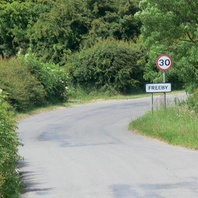
Viking Names
Freeby
Freeby, in the Framland Hundred of Leicestershire, comes from the Old Danish male personal name Fræði (genitive singular Frætha) combined with the Old Norse element by ‘a farmstead, a village’.
Read More

Viking Names
Sysonby
Sysonby, in the Framland Hundred of Leicestershire, comes from the Old Norse male personal name Sigsteinn (Middle English genitive singular Sigsteines) and Old Norse by ‘a farmstead, a village’.
Read More
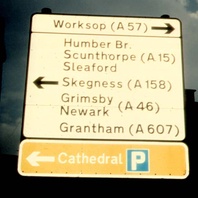
Viking Names
Great Grimsby
Great Grimsby, in the Bradley Wapentake of Lincolnshire, which was later joined with Haverstoe Wapentake to become known as Bradley Haverstoe Wapentake. The original name Grimsby comes from the Old Norse male personal name Grímr and the Old Norse element by ‘farm, settlement’. It is Great in contrast to Little Grimsby, in the Ludborough Wapentake of Lincolnshire; earlier spellings including mekill Grimesby are derived from Old Norse mikill ‘great’. The personal name Grímr is common across the Scandinavian world and recorded several times throughout Lincolnshire in the Domesday Book. For a saga-anecdote about Grimsby, see the blog post A Poet Visits Grimsby.
Read More
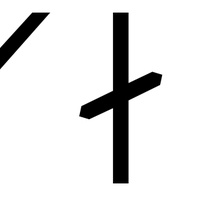
Viking Names
Skeggi
The male name Skeggi is sporadically recorded across Scandinavia and Iceland in the Viking Age and later. It forms the first element of Skegness, Lincolnshire, with Old Norse nes ‘headland’. The name possibly derives from the Old Norse word Skegg, meaning ‘beard’.
Read More
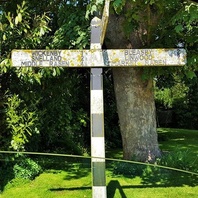
Viking Names
Wickenby
Wickenby, in the South Riding of Lindsey of Lincolnshire, comes from the Old Norse male personal name Víkingr and the Old Norse element by ‘farmstead, village’. Alternatively the first element might be the appellative víkingr ‘a viking’, the source of the personal name, but the personal name seems more likely.
Read More
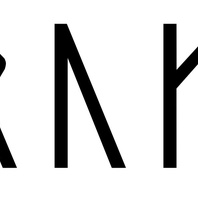
Viking Names
Hrok
Hrókr is not a common name in Scandinavia, though it does appear in a couple of Swedish runic inscriptions. The name is also the first element of Roxby, Lincolnshire.
Read More
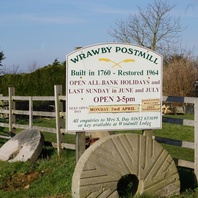
Viking Names
Wrawby
Wrawby, in the Yarborough Wapentake in Lincolnshire, comes from the Old Danish male personal name Wraggi and Old Norse by ‘farm, settlement’.
Read More
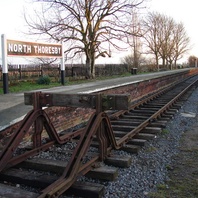
Viking Names
North Thoresby
North Thoresby, in the Haverstone Wapentake of Lincolnshire, comes from the Old Danish male personal name Thorir (Old Norse Þórir) and Old Norse by ‘a farmstead, a village’. The affix North distinguishes it from South Thoresby, in the Calcewith Hundred of Lincolnshire, which has the same etymology.
Read More

Viking Names
Algarthorpe
Algarthorpe, in the Broxtow Wapentake of Nottinghamshire, comes from the Old Norse male personal name Álfgeirr the Old Norse element þorp ‘outlying farm, settlement’. Algarthorpe is a deserted medieval village near Basford, Nottinghamshire.
Read More
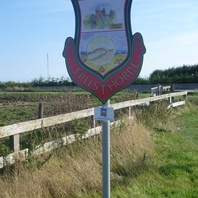
Viking Names
Trusthorpe
Trusthorpe, in the Calceworth Wapentake of Lincolshire, comes from the Old Norse male byname Strútr and Old Norse þorp ‘a secondary settlement, a dependent outlying farmstead or hamlet’. The same personal name appears in Strubby, Lincolnshire, but here the initial S- has been lost through dissimulation.
Read More
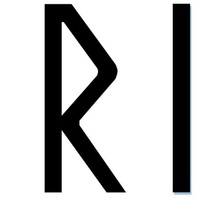
Viking Names
Ingirid
Ingiríðr is very common in Norway but less so in Iceland. It is also recorded in Denmark and Sweden. The name is also attested in medieval documents from Lincolnshire and Yorkshire. It is also the first element of the place-name Ingerthorpe, West Yorkshire. It is an Old Norse compound name with its first element Ingi–, which is of doubtful origin but might relate to a Greek word meaning ‘lance’ or ‘staff’ combined with –fríðr, related to Gothic frījōn ‘to love’, with original meaning ‘loved’, later ‘fair’. In origin it is thus the same name as Ingifríðr.
